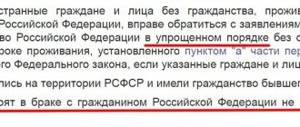Is it possible to receive the funded part of a pension for a deceased relative?
Receiving payments is possible if the deceased person was insured and made contributions to replenish the pension. Only heirs can receive the accumulated funds, among whom the money will be distributed as when dividing any property.
Attention! It will not be possible to receive money if a person received a pension payment in full before his death.
Heirs have the right to receive funds that have not yet been paid to the pensioner. If a person has paid a pension for a certain period, then after his death the heirs will only be able to count on the remaining amount of savings. Payment of funds will not be possible if the account was emptied during the person’s lifetime.
How to find out the amount of your funded part in the Pension Fund Personal Account
Access to information about your savings is available in the insured person’s account in the pension system. Website on the Internet – www.pfrf.ru. You can log in to your personal account by receiving your login and password from the pension fund branch, or using an account from the State Services portal:
- Go to the Pension Fund page, click on “Citizen’s Personal Account” and log in.
- Select the “Individual personal account” section.
- There are several options offered here, click on “Get information about generated rights.”
- To open a pension account statement, go to the “Information on earnings and experience reflected in the ILS” tab.
Is this an inheritance
Every citizen of the Russian Federation is obliged to pay funds towards the formation of his pension. The list of compulsory pension insurance also includes a funded part.
Contributions to the Pension Fund are formed from the following types of payments:
- Maternal capital . It is included in the amount of the funded pension if the parents decide to use the money received to form future contributions.
- Profit from investing funds in various savings programs.
- Funds paid by citizens personally . This may be an initiative of the individual himself or an obligation for self-employed persons.
- Contributions from the employer if the citizen is employed under an official employment contract.
The legislation fully allows heirs to receive the funded part of the pension if the deceased person did not manage to realize it in his own interests.
This applies both to situations where a person passed away before retirement, and when a person, after retirement, continued working in order to increase the final size of the funded portion, but died before the payments were made. Therefore, funds are inherited in accordance with all the rules established for relatives.
How does inheritance work?
The procedure for inheriting a funded pension does not differ from the algorithm provided for other property. A citizen must declare his right to inheritance within six months and submit the necessary papers that can prove the degree of relationship between the applicant and the deceased person.
Further, the inheritance procedure will depend on the number of heirs. If there are several of them, then the remaining amount will be divided among all claimants to the property, and if there is only one heir, all the money will go to him.
Reference! The exception is when the distribution of property is carried out on the basis of a will drawn up by a person before his death. Then the funds are distributed in accordance with the will of the testator.
Who can receive funds?
To inherit the funded part of the pension, you need to familiarize yourself with the articles of Federal Law No. 173. The circle of persons who can count on payment after the death of the insured citizen is also listed here.
Persons who belong to the heirs of the first and second stages will be able to receive payment from the funded part . These include husband or wife, children, parents, brothers, sisters. If these categories of persons have the opportunity to receive a payment, then there are also those groups that have a guaranteed right to receive a pension for a deceased person.
Such persons include those who were dependent on the deceased for at least one year. But in order to receive a payment to a dependent, you will need to take into account several important nuances, without which the funds cannot be paid.
A ban on receiving an inheritance may be imposed if a person has been recognized as an unworthy heir. In this case, the person is deprived of even the guaranteed right to payment of funds. Access to pension savings if the fact of unworthiness is confirmed can be prohibited only by a court decision.
The decision to deprive the right is made by the court based on the following factors:
- The person committed unlawful acts against the deceased. Such actions include harm to health and attempted murder.
- The person did not fulfill his obligations to the deceased. For example, a person refused to pay alimony.
Funds can be allocated not only in full, but also in partial amounts . This is possible if there are several heirs who are included in the same queue. Then all pension savings are divided between the heirs into equal parts.
Important! In controversial situations, relatives go to court to fairly divide the payments.
An additional way to resolve the issue regarding the distribution of a funded pension is a will executed by a person before his death. If the heirs disagree with the provisions of the will, they can be challenged in the courtroom. If there are no contradictions or illegal actions in the execution of the document, the claim to change or invalidate the provisions of the will will be rejected.
Process of receiving money
To receive pension savings as an inheritance, you will need to act in accordance with the conditions of Russian legislation. The issue of inheritance is considered in the RF PP No. 471.
To make a payment you will need to follow the algorithm:
- Find out all the necessary information.
- Collect documents.
- Go to the Pension Fund with the collected papers.
- Submit an application with documentary evidence to receive payment.
- By decision of the council, funds will be sent to the specified details or the application will be rejected.
Sample application for receiving a funded part of a pension for a deceased relative:
List of required documents to receive savings in the form of an inheritance:
- passport;
- birth certificate (if a minor is to receive funds);
- court order to extend the period for filing an application (if the period for filing an application was missed);
- confirmation of the degree of relationship between the applicant and the deceased person;
- death certificate;
- power of attorney (for representatives only);
- SNILS of the deceased person;
- details where the money must be sent if the council’s decision is positive.
An important nuance is to fill out the application correctly. If the application is not made according to the form, the pension fund employees will reject the application. There should be no corrections or blots in the finished document; they will be another reason for rejecting the application.
The generally accepted form of the document includes the following points:
- Applicant details (full name).
- Who is this person related to the deceased person?
- Passport details.
- Grounds for receiving a pension.
- Details for transferring funds.
- Temporary or permanent registration address.
- Number and signature of the applicant.
If the application is rejected, the citizen has every right to appeal the decision in court.
The documents and application must be submitted to the local PF office. Transfer of documents is allowed not only during a personal visit to the institution, but also through a third party, who must have a power of attorney from the applicant. If it was decided to send the papers by mail, then this can only be done using a registered letter with a list of attachments.
The legislation allows you to apply to the fund in accordance with the standard deadlines for registering an inheritance - 6 months from the date of death of a person . It is possible to submit an application without taking into account the deadline only in exceptional circumstances, when the heir was not informed or did not have the physical opportunity to be present during the division of property.
Important! The pension fund has five working days from the date of application to process the received application.
If the pension fund decides that the applicant has every reason to receive a payment, then a positive response to the application is issued. The funds will be transferred to the person by the 15th of the next month.
An applicant may be refused if the following facts were revealed during processing of the application and documents:
- Not a complete set of papers is presented.
- The application contains errors, inaccuracies or corrections.
- The submitted documents are fake.
- Incorrect information was transmitted.
- There are no grounds for payment.
The commission's decision may be challenged. To do this, the applicant must draw up and submit a petition to appeal the decision.
Nuances
Legislation allows citizens of the Russian Federation to store their pension savings in state and non-state funds. Therefore, the place of circulation will depend on where exactly the deceased person kept the funds. The procedure for registering and receiving savings will be carried out under the RF Regulation No. 471, regardless of the organization.
The law prohibits pension funds from requesting an expanded package of documents. Therefore, before contacting the organization, there is no need to clarify which list of papers is necessary to process the payment.
If the pension fund requests additional papers, the applicant can immediately apply to the court with a corresponding application . Such an action on the part of the PF is illegal, for which the responsible person will be punished in accordance with the administrative or criminal code.
To receive a funded pension, you need to fill out an application, collect papers and submit a complete package of documents to the pension fund. Funds will be transferred to the applicant using the specified details only if there are grounds.
Who has the right to inherit
The legal basis for accepting the inheritance from the savings of the deceased is his relatives.
Initially, payments are determined to the spouse, child or parent of the testator, while adopted persons and adoptive parents, guardians have equal rights to the inheritance.
If it is established that there are no successors of the first order, their inaction, or in the event of their refusal to accept funds, the pension will be issued to grandchildren, sisters, brothers, grandparents.
Since people do not always find out about the death of a loved one, the PFRF undertakes to send out notifications about the likelihood of acquiring the deceased’s savings.
The testator can personally appoint recipients of his property by submitting a corresponding petition to the Pension Fund. The latter undertakes to inform the relatives of the deceased about his last will. When there is none, the heirs must come themselves and write an application to receive the savings.
The right of inheritance belongs to minor children, dependents of the deceased and disabled or incompetent descendants. In this case, it will not matter whether they lived together with the deceased or not.
Those persons who lived with the testator before his death also have grounds for payments.
If a citizen drew up documents with a non-state pension fund or produced them under a compulsory pension insurance contract, then the heirs are included in a separate clause of the agreement itself. That is, within the transfer agreement the citizens who will be given the money after the death of the testator will be clearly stated. However, this section is not mandatory and can be left blank. Then the legal heirs receive the right of inheritance.
We recommend reading: Entering into inheritance after 6 months after death








